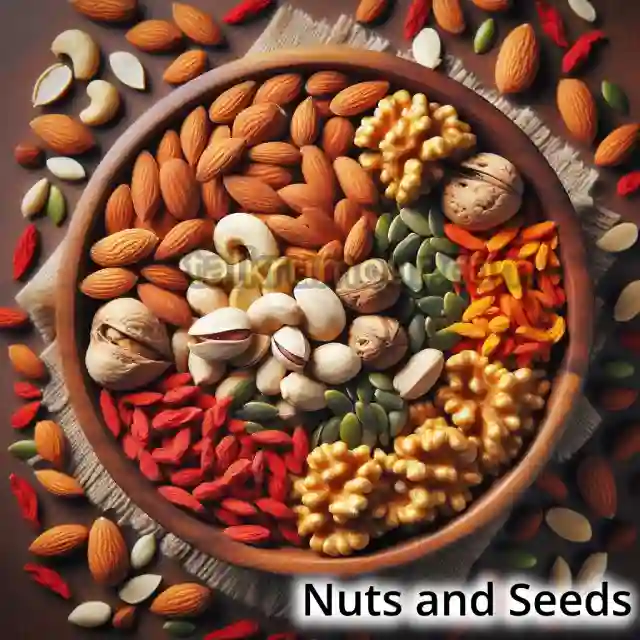As the temperature is dropping, the cold days are getting shorter. It is the time of year when you must shift your dietary needs for healthy living. Just like you adapt the wardrobes, winterizing your diet to keep your body warm during the cold months is essential.
In this article, we are going to suggest the best tips to adjust your diet and stay healthy during the cold months. Follow below to make mindful choices that provide the nutrients your body craves to thrive in the chilly season.
Table of Contents
Importance of Winterizing Your Diet
It is essential to modify your diet to meet the specific requirements of your body throughout the freezing months. You can improve both your mental and physical health by consuming seasonal produce that is high in crucial nutrients. You can also embrace warming spices and include foods that strengthen your immune system.
Consuming the right amount of vitamin D and omega-3 fatty acids and staying hydrated are both essential for good health. A well-maintained immune system for winterizing your diet gives you energy and supports your mental health. It helps you overcome the difficulties that come with the changing seasons.
5 Must-Have Food for Winter
Here are 5 must-have foods for winterizing your diet to make this winter more healthy:
Citrus Fruits
Citrus fruits such as oranges, grapefruits, and clementines are enriched with vitamin C. These fruits are a powerful antioxidant that helps in strengthening the immune system. These fruits have the ability to prevent infections and maintain a healthy immune system, especially in the winter when colds and the flu are more common.

Warming Spices
The inclusion of spices such as ginger, cinnamon, turmeric, and cayenne pepper can enhance the taste and health advantages of your winter dishes. These spices have anti-inflammatory and circulatory-improving qualities. It not only makes your food taste better but also improves your health in general during the winter months.

Nuts and Seeds
Consumption of nutritious powerhouses, such as nuts, and seeds like walnuts, almonds, chia seeds, and flaxseeds are one of the best ways for winterizing your diet. These are enriched with protein, healthy fats, and vital elements. These convenient and versatile snacks have a nice crunch and provide your body with the energy and essential minerals it needs to be healthy during the winter.

Root Vegetables
Winter vegetables such as parsnips, sweet potatoes, carrots, and beets are great options to keep your body healthy. These root vegetables are rich in fiber, vitamins, and minerals that make a substantial and nourishing foundation for soups, stews, and roasts. It has the potential to leave you feeling full and well-fed.

Cheese, Eggs, and Fishes
Cheese is rich in calcium and protein which is a great way to keep your bones and energy levels up during the winter. Eggs are a nutrient-dense food that provides essential immune-supporting protein and vitamin D for winterizing your diet. Omega-3 fatty acids are found in fatty fish like salmon. It aids in supporting heart health, fighting the winter blues, and improving general well-being on chilly days.

Role of Vitamin D
The importance of vitamin D increases as the temperature decreases and the sunlight is less exposed during the winter months. The skin produces vitamin D which is sometimes known as the “sunshine vitamin” in reaction to sunlight. It can be difficult to maintain proper vitamin D levels throughout the chill days when there are fewer sunshine hours, which can also have negative health effects.
Here are a few roles of vitamin D that are important for winterizing your diet:
Immune System Support
The immunomodulatory effects of vitamin D are well-known to everyone. It affects both the natural and adaptive immune reactions of our body. A vitamin B12 shortage may damage the immune system’s defense against infections by making you more vulnerable to colds and the flu in the winter.
Bone Health
The absorption of calcium and phosphorus are two important nutrients for keeping strong, healthy bones. Low amounts of vitamin D can weaken bones and raise the risk of fractures and diseases like “osteoporosis”.
Reduced Inflammation
Sufficient amounts of vitamin D contain anti-inflammatory properties that help in controlling your body’s inflammatory reactions. Many chronic illnesses are linked to inflammation and preserving ideal vitamin D levels may improve your general health and well-being.
Cardiovascular Health
Studies have proven that vitamin D is linked to cardiovascular health and have shown that it may help lower the risk of heart disease. Winterizing your diet and keeping vitamin D levels adequate during the winter may benefit your cardiovascular health.
Cognitive Regulation
An increasing amount of evidence points to a connection between vitamin D and cognitive health. Wintertime lower sun exposure is connected to a higher incidence of depression known as “Seasonal Affective Disorder (SAD)”. This disease, caused by low vitamin D levels can impact your overall mental regulation.
Tips for a Healthy Winter
Follow the below tips for winterizing your diet:
- You must prioritize fruits and vegetables in the winter season, such as citrus fruits, root vegetables, and dark leafy greens, to ensure a nutrient-rich diet.
- Fight winter dehydration by drinking a generous amount of water, herbal teas, soups, and warm beverages to support digestion and overall well-being.
- Incorporate garlic, onions, mushrooms, and foods rich in vitamin C to strengthen your immune system and stay safe from common winter illnesses.
- Go for whole grains, lean proteins, and healthy fats to provide sustained energy that can help you keep full and nourished during the colder months.
- Concentrate on consuming vitamin D-rich foods like fatty fish, fortified dairy, and eggs, or consider supplements to support bone health, immunity, and cognitive regulation.
- Enjoy winter treats in temperance by balancing indulgence with nutrient-dense choices to winterizing your diet while savoring seasonal delights.
- Enough sleep not only improves your mood and general well-being but also strengthens your immune system by allowing your body ample time to heal and rebuild itself.
Final Thoughts
Winterizing your diet to give your body the nourishment it requires to flourish throughout the winter months is essential. Key components of a winter-based diet include embracing seasonal produce, giving priority to foods high in nutrients, staying hydrated, and adding warming spices. You can also consume foods enriched with nutrients such as omega-3 fatty acids and vitamin D to emphasize meals and strengthen the immune system.
You may enhance your well-being and fully enjoy the winter season by making thoughtful decisions and striking a balance between indulgence and nutrition. Besides winterizing your diet, spend more time in the sunlit, keep exercising, and stay social to avoid any health issues. Winters need not be gloomy anymore.
Frequently Asked Questions(FAQs)
Should your diet change in winter?
To stay fit, your diet should be proper for the whole year. Therefore, Winterizing your diet is not a big deal. You can include seasonal fruits and vegetables as in other seasons.
What food should you avoid in winter?
Excessive caffeine is the most tempting food in winter. One should try to avoid it. Always keep this in mind when Winterizing your diet.
What are the best warming foods?
Seasonal root vegetables like carrots, radishes, or potatoes, green leaves like spinach, and hot soups are warming foods for Winterizing your diet.
Which fruits keep your body warm?
Bananas can be the perfect fruit to keep your body warm. Therefore one must include bananas in the process of Winterizing your diet .
Which foods can reduce heat in winter?
Citrus, Sugarcane juice, cucumbers, and buttermilk can be the best foods to reduce heat in winter.
How can I remove heat from my body naturally?
You should drink normal-temperature liquids, move around in cooler or fresh air, and wear lighter clothes.
Which juice can remove body heat?
Coconut water, Pomegranate juice, and sugarcane juice can best remove body heat.
Which oil reduces body heat naturally?
Eucalyptus can reduce body heat naturally. It has strong anti-inflammatory substances that are ideal for body heat naturally.










